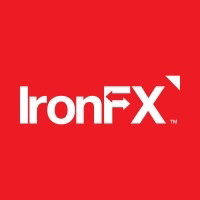The world of finance is witnessing a transformative revolution with the advent of real world asset tokenization, or RWAs, in the cryptocurrency space. Imagine having the opportunity to own a fraction of a Bugatti Chiron or a minuscule share of the iconic $295 million "The One" residence in Los Angeles. RWAs are making these dreams a reality and much more. By digitizing physical assets, such as real estate and financial securities like bonds, RWAs offer shared ownership of these tangible assets to token holders.
However, the impact of RWAs extends far beyond mere ownership. It has the potential to revolutionize community-based financing, increase accessibility to emerging markets with limited access to traditional finance, and reduce systemic risk exposure associated with traditional asset classes. In essence, RWAs represent the latest and most exciting transformation of the blockchain ecosystem.
Currently, several companies are already providing shared ownership of high-value assets, including artwork, real estate, precious metals, and collectibles. The advantages are numerous, such as the elimination of forgery or counterfeiting issues, easy verification of provenance (the chain of ownership), and the removal of intermediaries like lawyers and escrow accounts during asset transfers.
Diving Deeper into Real World Assets (RWAs)
Fractional Ownership
Fractionalized real estate funds are not a new concept and have been around since the early 1990s. Fractional ownership also extends to high-value recreational or luxury assets like vacation homes, yachts, supercars, and private jets. This approach not only spreads the substantial capital required for these assets but also minimizes ownership risk.
Luxury assets like vehicles, yachts, and private jets come with ongoing maintenance costs, mooring fees, hangar storage costs, and climate-controlled storage expenses. Traditional financing institutions demand significant collateral and capital for loans related to these assets due to their perceived risk. RWAs, powered by smart contracts, eliminate many of these hurdles.
Early Recognition of RWAs
The concept of tokenizing real-world assets has been on the radar of traditional financial institutions since as far back as 2015. While these institutions might not have been overly enthusiastic about cryptocurrencies due to their volatility, they recognized the utility of on-chain assets and transactions. Offering clients 24/7 transaction verification and settlement at lower fees, tracking ownership, and avoiding errors like double transactions and forgeries were compelling reasons for legacy financial institutions to explore the potential of RWAs.
Tokenization of Real World Assets
Tokenizing real world assets might sound complex, but it's happening daily. Real-world assets like homes, cars, collectibles, and precious metals come with various documents and records. However, these systems are fragmented, slow, and laden with bureaucracy. Transferring ownership can be time-consuming and costly, involving lawyers, banks, and additional hidden financial charges.
RWAs streamline this process by putting ownership records on a blockchain. Ownership can be fractionalized, allowing speculators to trade fractions of ownership without the need for intermediaries. Since blockchain is a distributed ledger that cannot be forged or duplicated, ownership authenticity is assured. Furthermore, RWAs offer quicker and more cost-effective ownership transfers than traditional methods.
Emergence of RWAs in Crypto
In recent years, smart contracts have given rise to secondary markets, including the issuance of digital assets, digital securities, and asset management services akin to traditional financial markets. As DeFi yields decreased, DeFi architects began exploring more liquid investment opportunities, leading to the emergence of RWAs.
Initially, RWAs primarily encompassed real estate, precious metals, and high-value collectibles like fine art. Eventually, the concept expanded to include government bonds, treasury bonds, and other off-chain-managed physical assets. This evolution allowed DeFi participants to create their own capital market products.
Early Adopters Several protocols have embraced RWAs, with MakerDAO, Maple Finance, and Ondo Finance among the early adopters. Ondo Finance, for example, invests in on-chain exchange-traded funds, providing high liquidity assets worth millions. MakerDAO not only offers tokenized RWAs but also prepares for potential regulation. Their "MakerDAO endgame" strategy involves acquiring "Physically Resilient RWAs" to make it harder for authorities to confiscate these assets. Maple Finance offers active loan services to institutional borrowers through DeFi protocols. Lenders can choose pools based on borrowers' risk profiles and attractive credit protocols.
Current Trends
RWAs are gaining traction across multiple blockchains, including Ethereum, Polygon, Gnosis, Avalanche, and Fantom. These assets are becoming more diverse, including tokenized carbon credits, financial vehicles on private chains, corporate bonds, debt financing, and other intangible assets. DeFi protocols are expected to enhance regulatory compliance to prevent the prohibition or confiscation of tokenized RWAs.
Tokenizing RWAs: The Technical Process Tokenizing
RWAs involves transferring ownership to the blockchain, eliminating physical documents. Ownership can be divided into fractions, enabling speculative trading without the involvement of third parties. The blockchain's transparency and immutability ensure ownership cannot be manipulated or duplicated. Sales and purchases of RWA tokens are faster and more cost-effective than traditional ownership transfers.
The Benefits of Tokenization Tokenizing
RWAs offers numerous advantages, including reduced costs by eliminating legal counsel and traditional banking fees. Transactions are quicker, automated, and can occur at any time, unlike traditional ownership transfers. The process is more efficient and accessible. DeFi and RWAs RWAs provide DeFi with access to a new capital market, enabling community-funded institutional lending and decentralized finance. This diversification allows DeFi to tap into new investment opportunities, sustaining economic turnover.
Regulatory Landscape
RWAs face regulatory challenges similar to cryptocurrencies. Some governments may prohibit them, while others may allow trading but subject it to stringent scrutiny. Regulatory compliance is vital for mass adoption.
Compliance and Solutions
Regulatory compliance and licensing are essential for widespread adoption of RWAs. With the right legal infrastructure, RWAs can reshape financial markets and the financial service landscape.
Case Studies
RWAs have attracted attention from legacy financial institutions, including the US Federal Reserve. Real estate, bonds, commodities, and stocks are already being tokenized. RWAs offer accessibility, cost-efficiency, fractional ownership, enhanced smart contract features, and broader investment opportunities.
While predicting the future of RWAs remains challenging, they hold significant potential. Organizations like the US Federal Reserve are exploring their benefits, and more banks and financial institutions are likely to follow suit.
In Conclusion RWAs represent a feasible and practical application of blockchain technology. They enhance asset ownership, reduce costs, and streamline transactions. With regulatory compliance and continued innovation, RWAs have the potential to reshape financial markets and redefine the financial services industry.

















